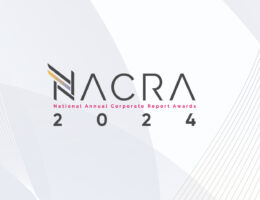The comprehensive Budget 2024 tabled on 13 October 2023 is geared to putting the nation on a stronger fiscal footing while ushering in key reforms for good governance and sustainability. At the same time, the Budget put forth numerous measures that are relevant to the future-proofing of the accountancy profession and MIA members. Among others, these included measures on talent, taxation, environment, social, governance (ESG) and the sustainability agenda, digital transformation, Islamic finance and public sector.

‘’Accountancy talent is critical to the business and economy. We are pleased that certain measures support the development and on-going implementation of the MIA’s Competency Framework (CFM),” said Datuk Bazlan Osman, President of the MIA. “The MIA CFM is a set of principles that defines the baseline competencies and skill sets required to become accountancy professionals who are able to demonstrate their proficiency at different levels including Accounting Technicians.”
These measures include:
- The allocation of RM6.8 billion for TVET education which is essential to train and produce more young graduates who can perform the role of Accounting Technicians in support of organisations and Shared Service Centres.
- The extension of tax rebate up to RM2,000 for self-development and upskilling to 2026, which is a good move in encouraging young graduates and accountancy professionals to continue upskilling on specific courses as part of personal development.
- The introduction of the Long-Term Social Visit pass for international students who have completed their education bodes well for international accounting graduates to stay in the country to support the profession. This will contribute towards the net export for accounting services as well as promote the country as the accounting education and training hub.
- Allocation of RM20 million to stimulate research, creativity and innovation in Islamic economics. This will bolster MIA’s aspiration to promote the development and advancement of Islamic finance talent along with accountancy education and research in Malaysia through the Malaysian Accountancy Research and Education Foundation (MAREF).

The Budget placed emphasis on strategic tax measures and efforts to diversify and strengthen revenue collection to support development spending and other national expenditures. These include the increase in the SST rate to 8%, the introduction of new legislation that will subject the luxury goods to a tax rate of 5 to 10% and the imposition of capital gains tax of 10% on shares of unlisted companies, subject to certain exemptions. In addition, MIA welcomes the retention of tax incentives to encourage women to re-enter the workforce which has been extended to 31 December 2027.

MIA strongly advocates that accountancy professionals embrace the nation’s ESG efforts and sustainability agenda and lend their expertise to the following incentives:
- Continuous support for sustainable and responsible investment (SRI) i.e. the extension of tax exemptions to fund management companies that manage SRI funds as well as tax deductions on the cost of issuing SRI sukuk until the year of assessment 2027.
- Encouragement for more companies to participate in the voluntary carbon market i.e. additional tax deduction up to RM300,000 for companies that spend on Measurement, Reporting and Verification (MRV) related to the development of carbon projects. These expenses can be deducted from the sales income of carbon credits traded on the Bursa Carbon Exchange (BCX).
- Provision for various forms of tax deductions for preservation and conservation activities in order to encourage more involvement from the private sector to contribute through charity or community projects. Tax deductions will be given to entities that sponsor tree planting activities or environmental preservation and conservation awareness projects certified by the Malaysian Forestry Research Institute (FRIM).
- Support for the social enterprise movement to create a positive environmental and social impact in line with the pillars of sustainability and well-being under Malaysia MADANI where the application period for tax exemption will be extended on all income of social enterprises until 2025.

MIA’s Chief Executive Officer Dr Wan Ahmad Rudirman Wan Razak welcomed the Budget’s focus on digital transformation and the allocation of funds/loans for digitalisation. “Digital transformation can streamline financial processes, improve reporting accuracy, and enhance business efficiency, presenting opportunities for the accountancy profession in Malaysia.”
MIA members are advised to take note of and upskill for the rollout of e-Invoice. According to Budget 2024, it is mandatory for taxpayers with an annual turnover of more than RM100 million to implement e-Invoice by 1 August 2024. This is in line with the joint feedback by MIA and the other bodies to the Lembaga Hasil Dalam Negeri Malaysia (LHDNM) which will allow sufficient time for smaller businesses (i.e. those with turnover of RM100 million and below) to prepare for e-Invoicing.
Budget 2024 is also geared to support the business continuity and resilience of micro, small, and medium enterprises (MSMEs) by providing financial assistance, digitalisation grants and loans. This aims to enhance competitiveness and encourage digitalisation among MSMEs to promote economic growth and inclusivity. These include:
- RM100 million being allocated to provide digitalisation grants of up to RM5,000 for the benefit of over 20,000 MSMEs. These grants can be used to upgrade digital sales, inventory, and accounting systems.
- RM900 million loans under Bank Negara Malaysia to encourage SMEs to enhance business productivity through automation and digitalisation.
Professional accountants in public practice should embrace the opportunity to digitalise their practices and utilise this as an opportunity to advise their clients in terms of applying for grants or loans, managing these funds effectively, ensuring the funds are used for intended purposes and complying with the requirements of grants/loans.
Professional accountants in business, particularly those working within companies eligible for grants, loans, and financial assistance, should seize this opportunity to transform their finance functions.

Islamic finance is a key area of focus for Budget 2024, in line with the Government’s efforts to strengthen Malaysia’s leadership in this sector. To support the government’s initiatives, MIA has continuously nurtured Islamic finance talent by building capacity and competency within the accountancy profession to support developments in the Islamic finance industry, through publications and relevant focus group discussions on current issues.
‘’The measures will support MIA’s advocacy for Islamic Finance to facilitate the attainment of the UNSDGs and enhance shariah assurance. MIA is currently working on the Shariah Audit Best Practice Guide to promote consistency in industry practices for halal entities and aid members on providing assurance services,’’ said Dr. Wan Ahmad Rudirman. This supports the Government’s efforts to simplify the halal certification process by reducing the processing days from 51 to 30 days especially for the export of halal products as mentioned in the Budget.

The Institute is strongly advocating for improving public financial management systems in support of good governance and sustainability. To address the fiscal deficit, the Government has passed the Public Finance and Fiscal Responsibility Bill 2023 or the Fiscal Responsibility Act (FRA). This reinforces the Government’s commitment to strengthening governance and ensuring transparency and accountability.






